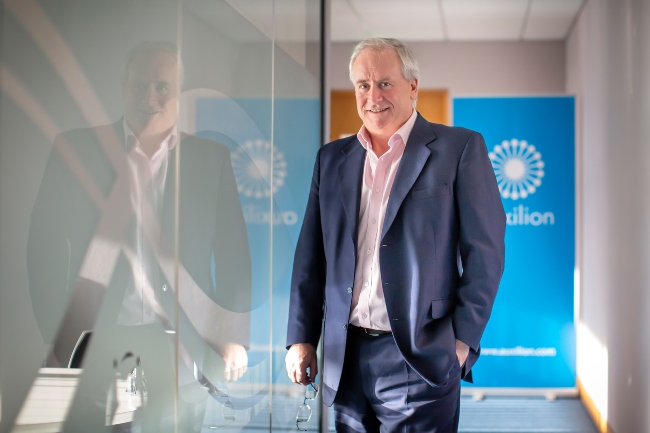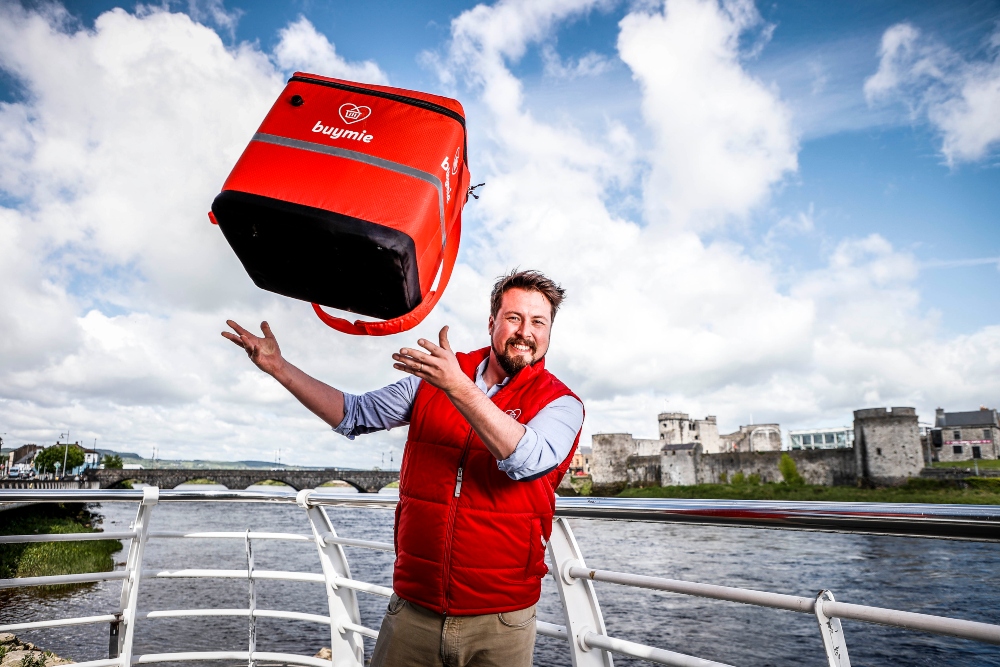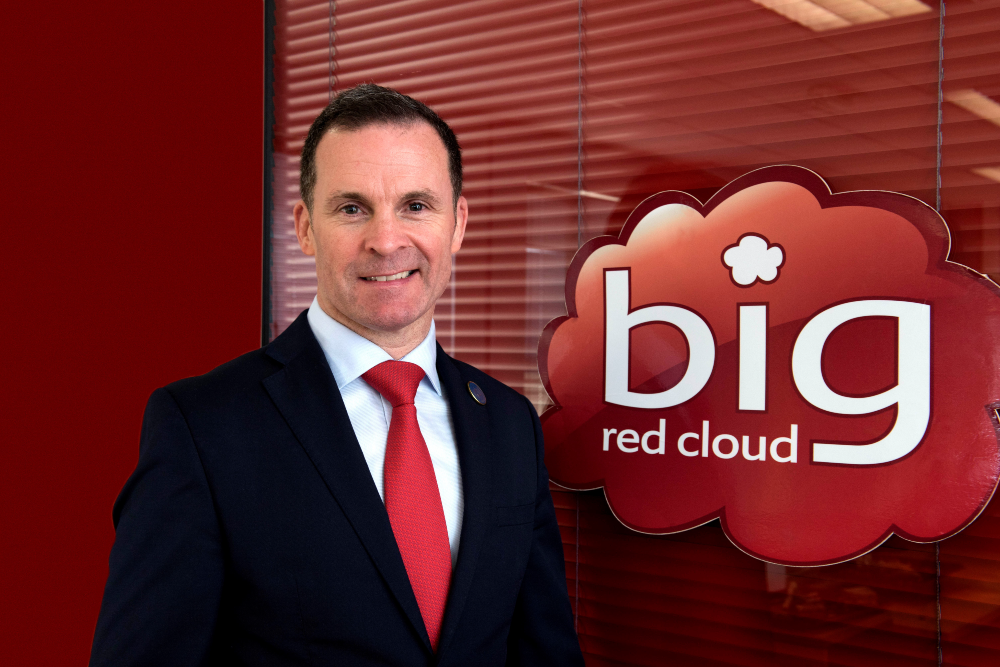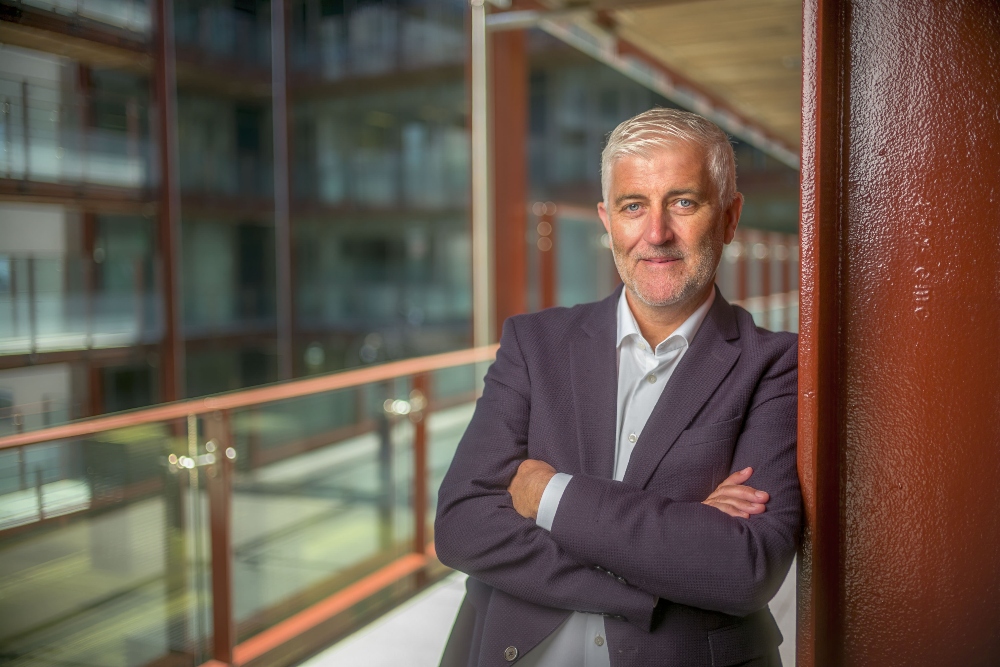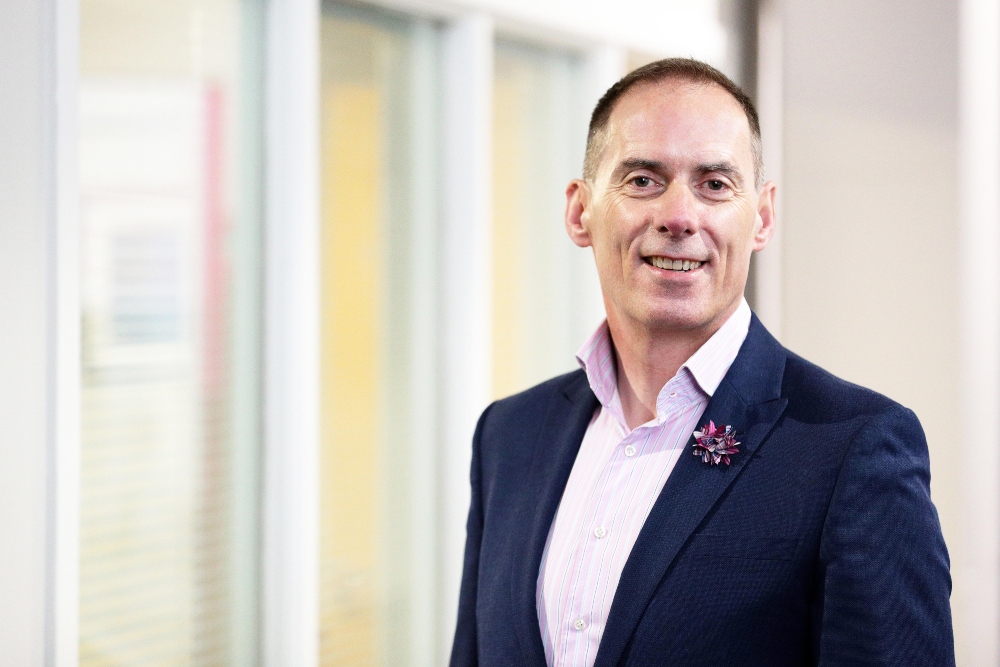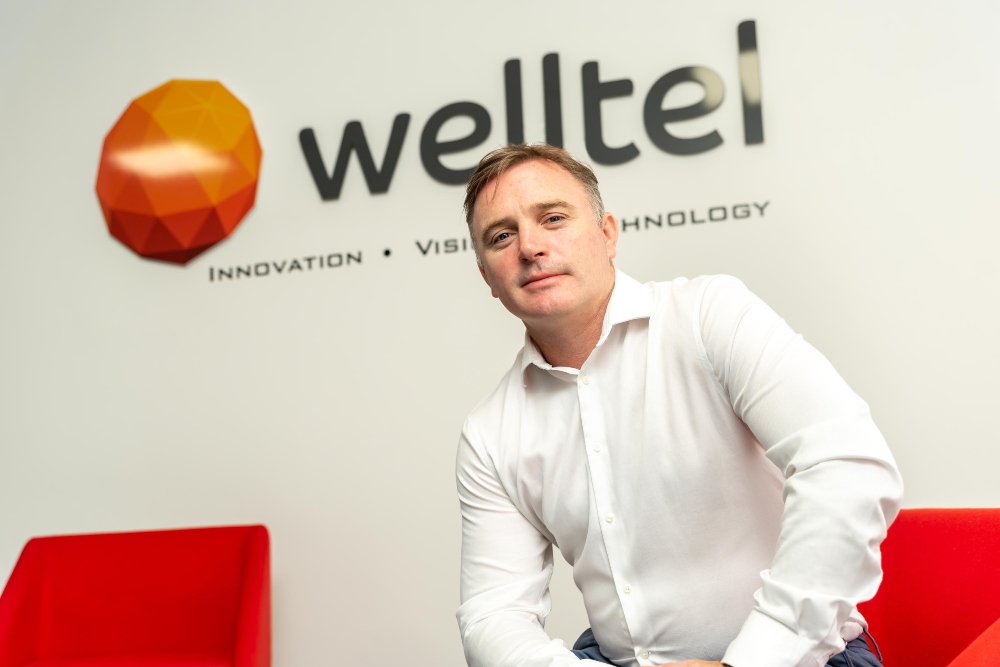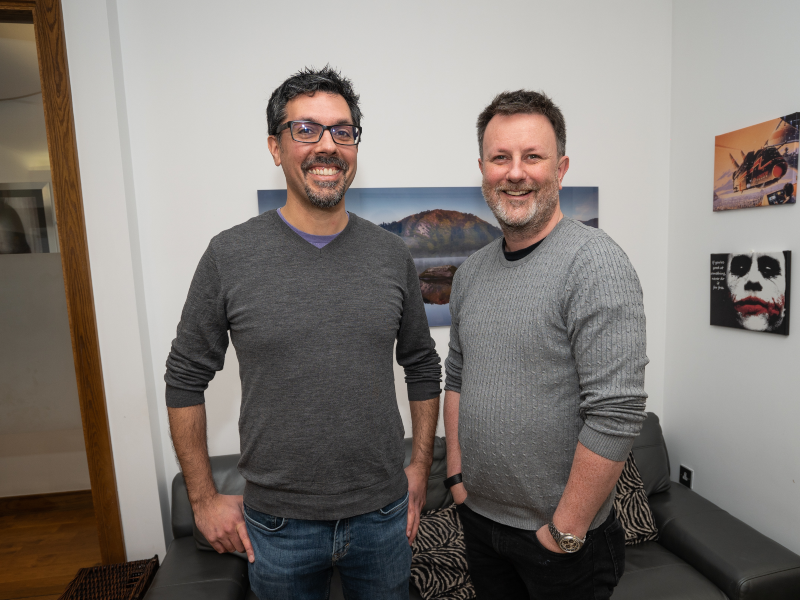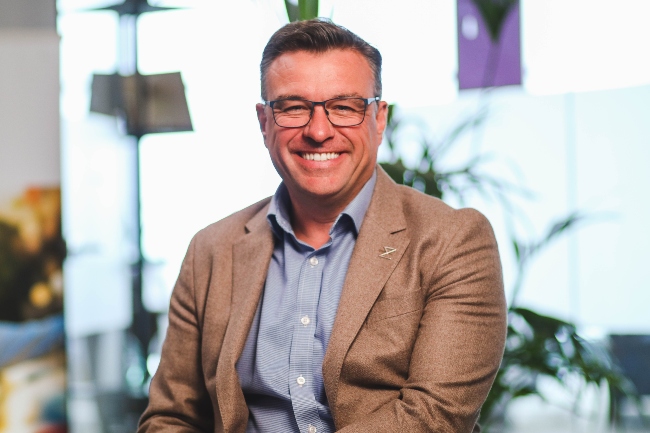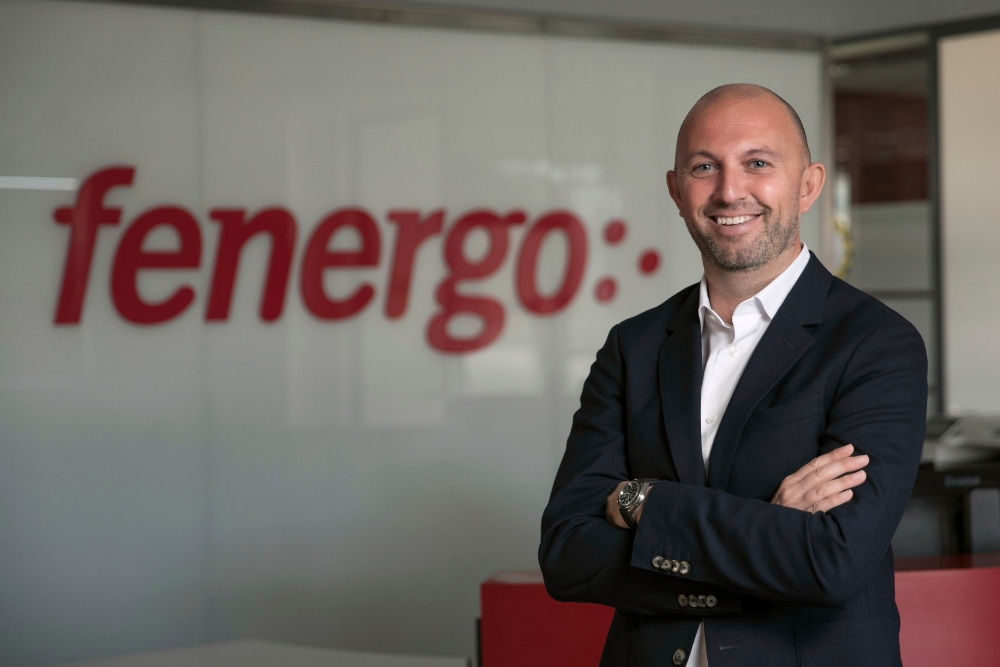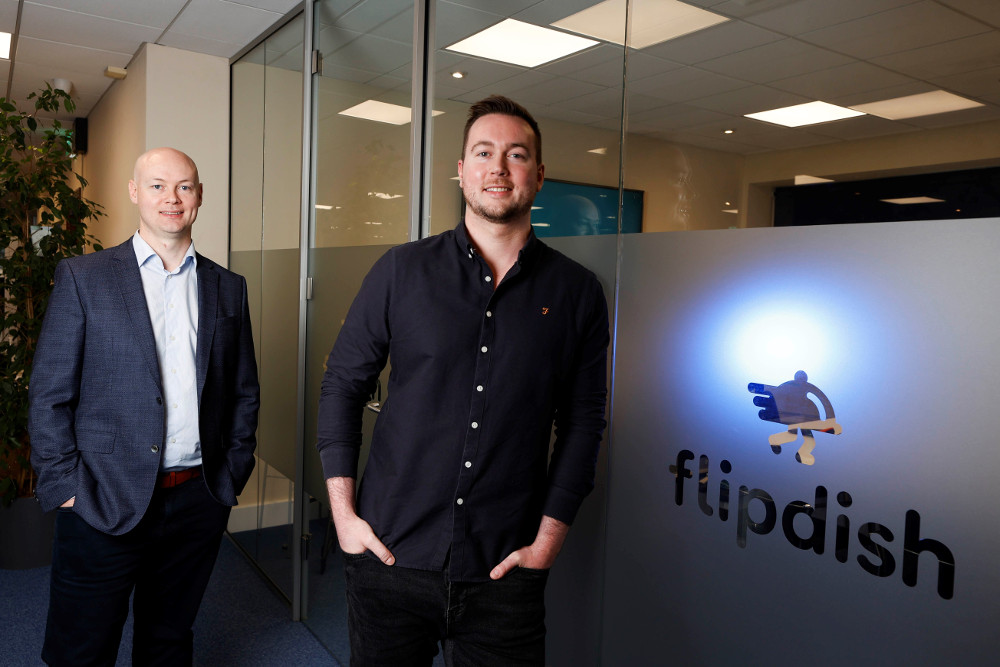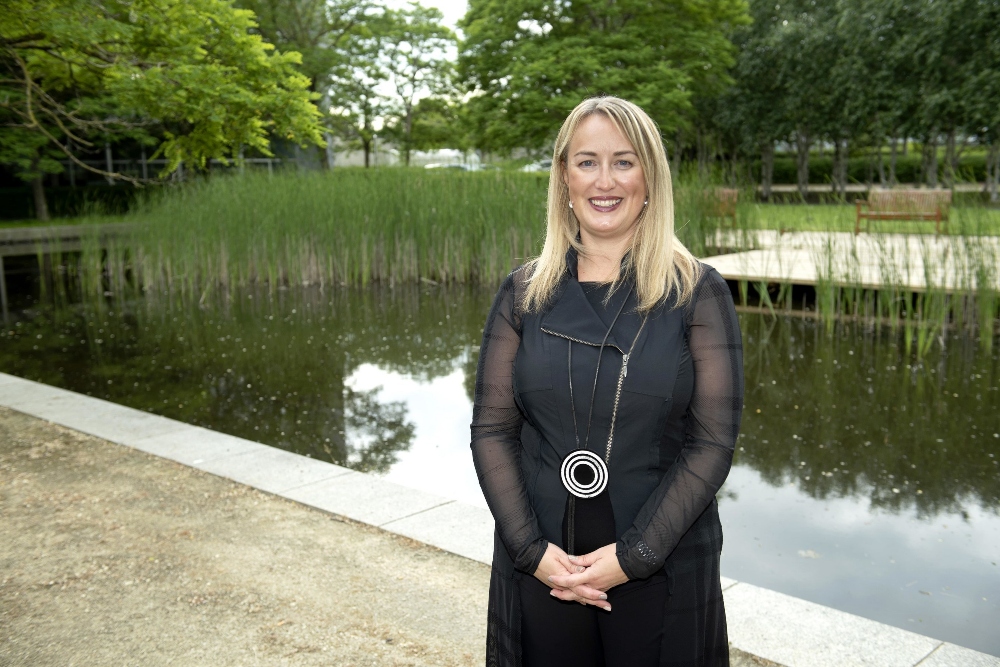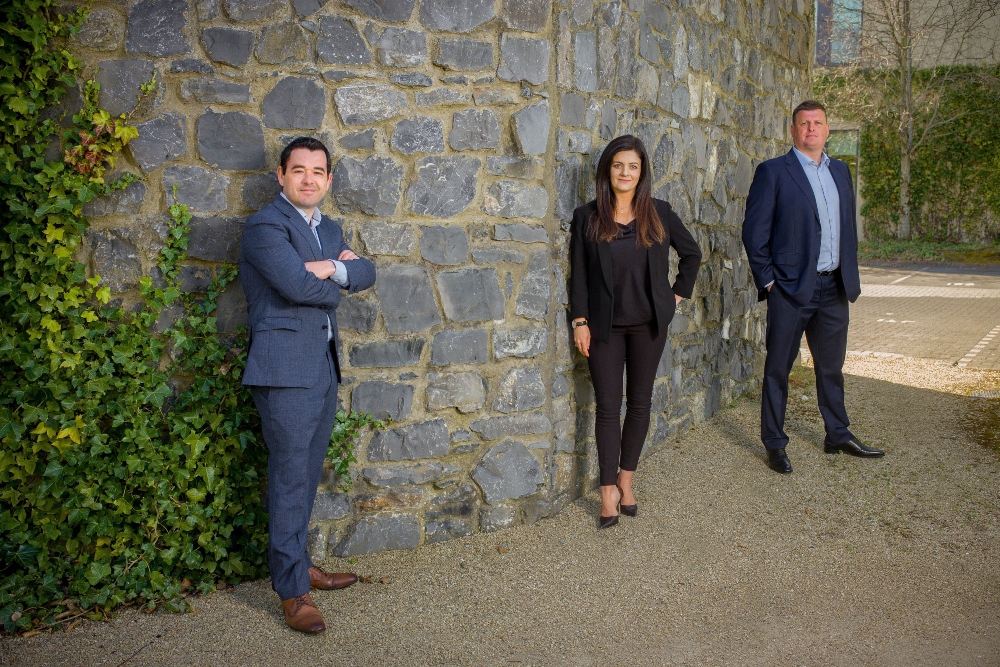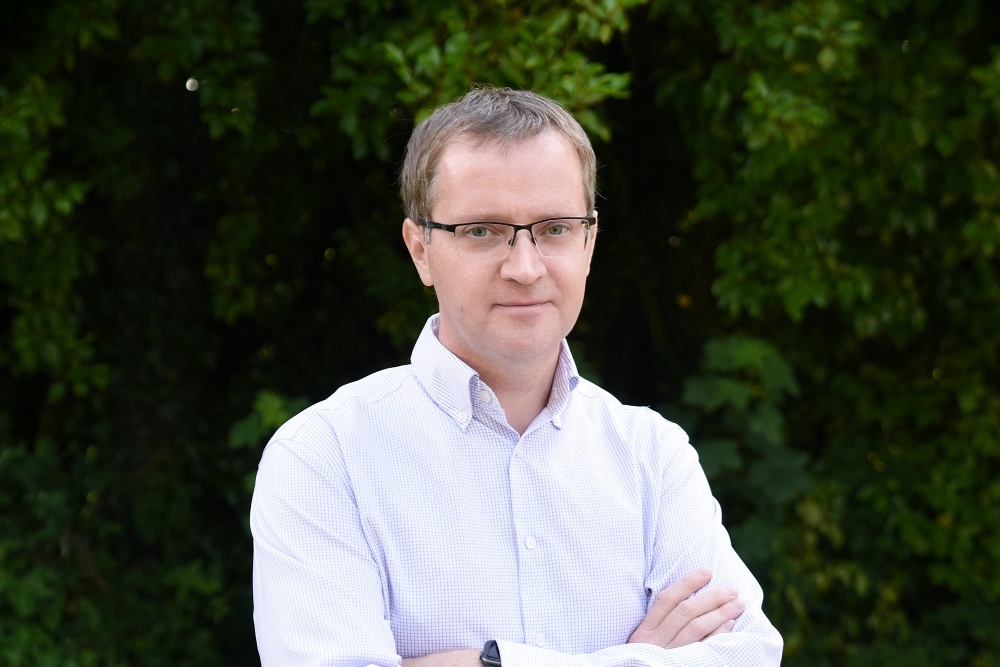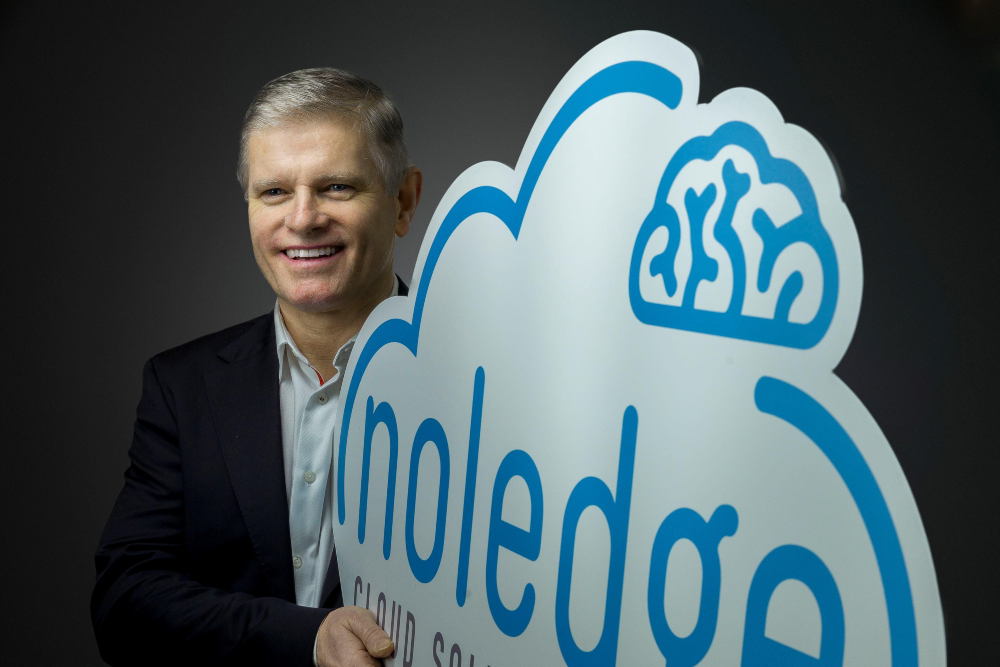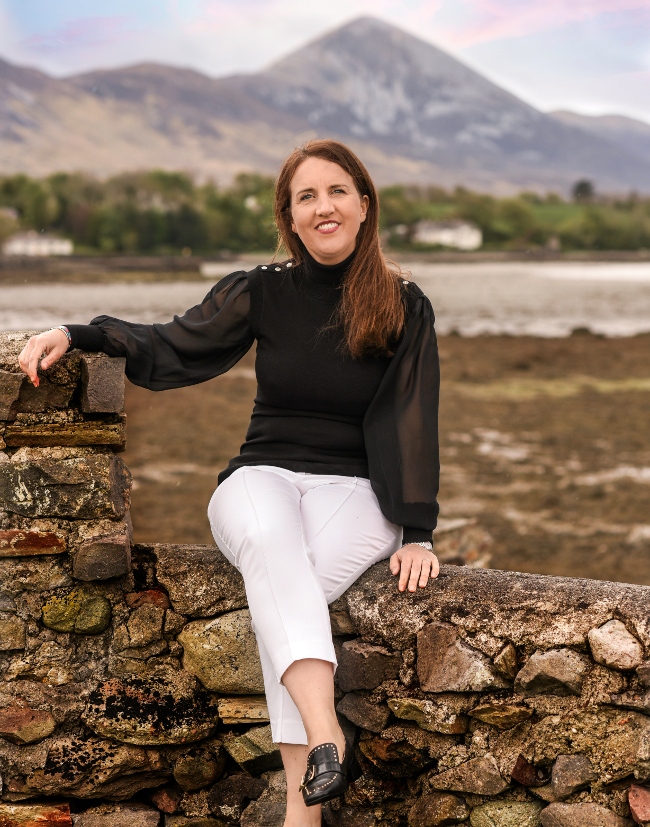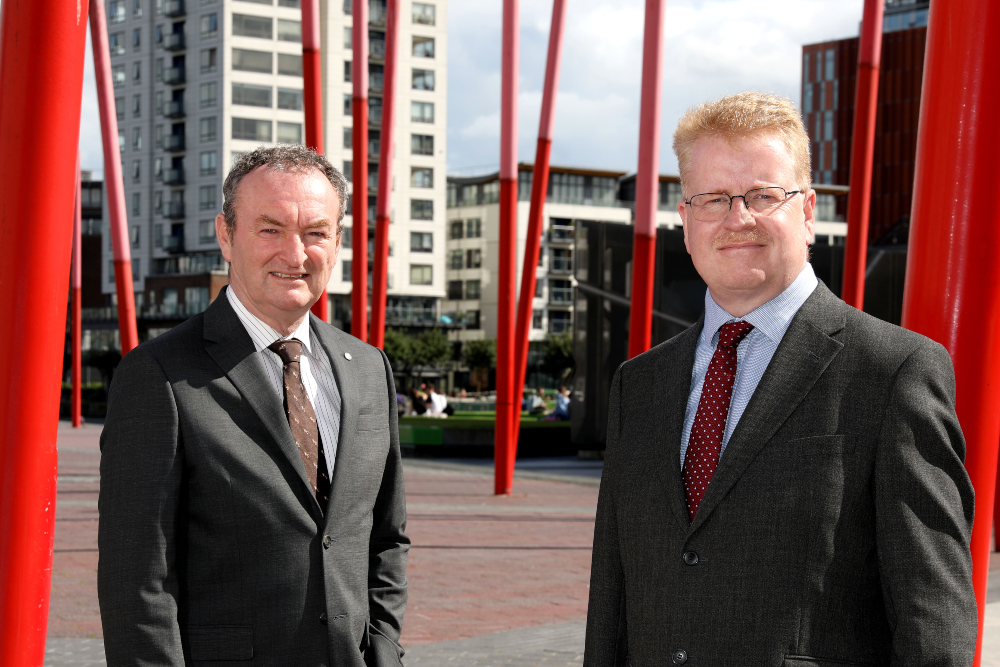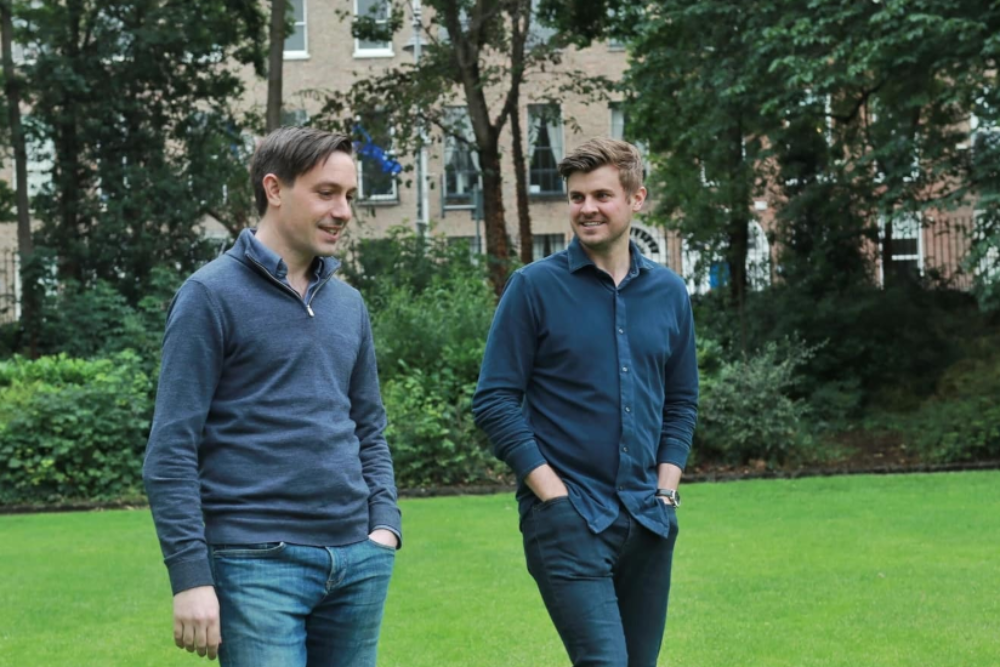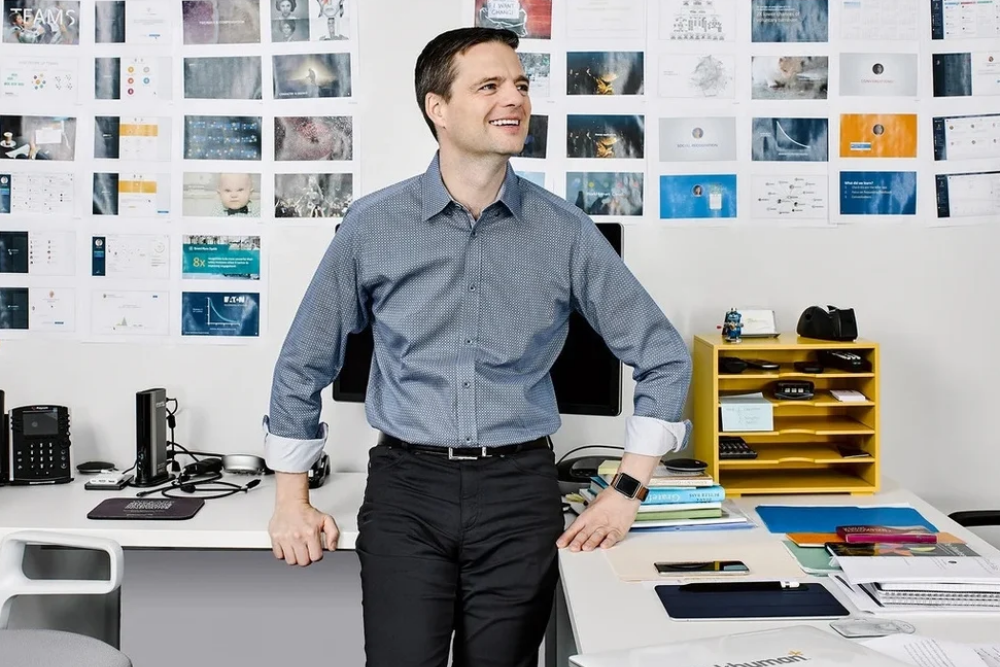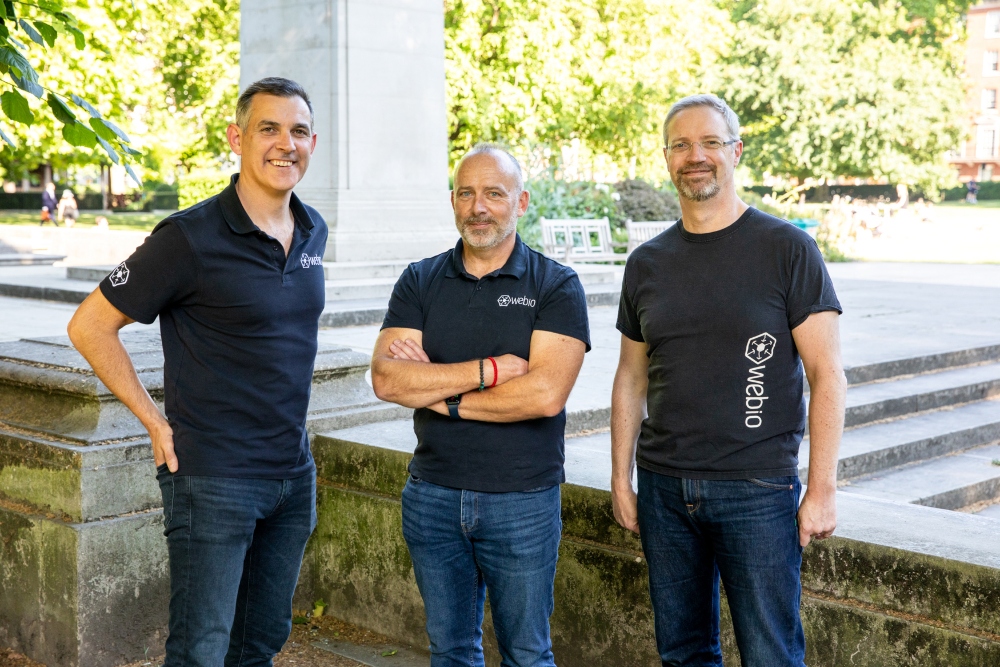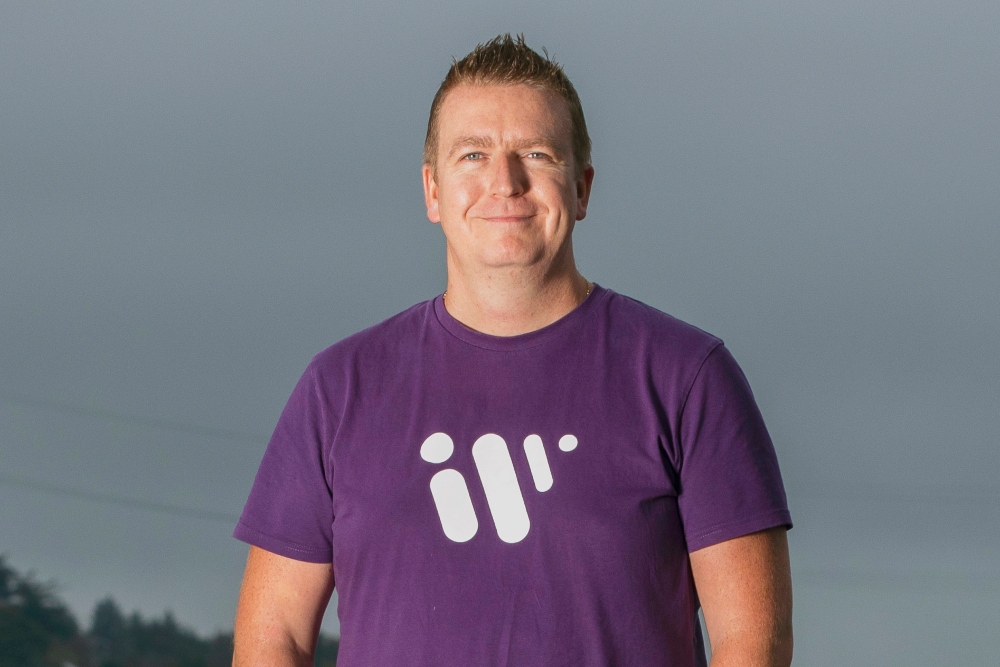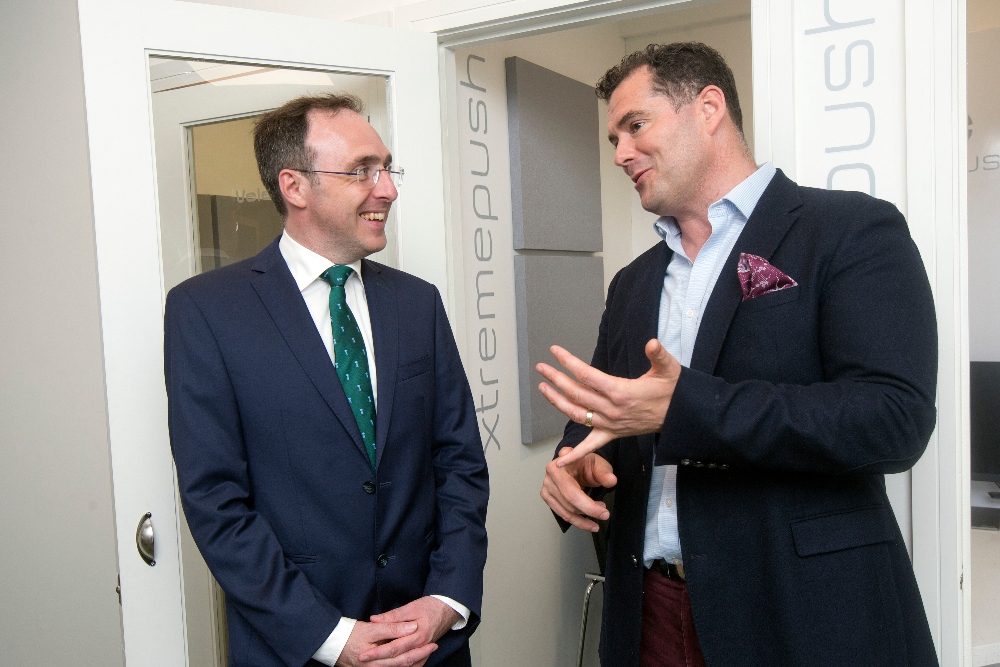From cloud apps to security software to the brave new world of no code and more, Irish business technology is scaling all over the world. Here are 37 players to watch.
From cloud to security to the brave new world of no code and more, Irish business technology is scaling all over the world. Here are players to watch.
Auxilion
Philip Maguire
Dublin-headquartered Auxilion recently revealed plans to create 110 new jobs over the next three years.
Auxilion provides a wide range of digital, cloud and IT services, including consulting and managed services.
Headed by CEO Philip Maguire, Auxilion is also forecasting that it will increase its annual revenues from €40m to €60m by 2024 through further customer growth, particularly in the areas of healthcare, financial services and the public sector.
The jobs announcement follows the restructuring of the company over the past 18 months. As part of this process, a number of senior management members were repositioned to build out the capabilities of the organisation′s consultancy offering and the firm built up its partner ecosystem with industry leaders such as Microsoft, HPE, Aruba and Dell.
Buymie
Buymie has created a platform using artificial intelligence (AI) technology that enables consumers to access multiple large grocery retailers and receive short notice delivery to their chosen destination in as little as an hour. Currently, the Buymie service is available in Dublin, Cork, Limerick and Galway through partnerships with Lidl, Tesco and Dunnes. Buymie, which was founded in 2015 by Artavazd Sokhikyan and Devan Hughes has grown over 500pc year on year comparing January 2020 to January 2021.
In recent months Buymie secured a new partnership with UK retailer Asda to offer a big-basket, same-day grocery delivery service to Bristol and Leeds residents in the UK.
In recent months the business secured a further €7m in funding to feed its rapid expansion plans.
Big Red Cloud
Marc O’Dwyer
Formerly known as Big Red Book, the accounting platform had been in existence since 1993 but CEO Marc O’Dwyer led an intensive strategy to bring the company firmly onto the cloud.
Today Big Red Cloud is a fully-fledged digital platform that is used by more than 75,000 businesses across Ireland and the UK.
A recent alliance with US fintech Plaid enables owner-managers using the platform to connect their accounts at more than 11,000 financial institutions, including Bank of Ireland.
CWSI
Ronan Murphy
CWSI is an Irish business founded by Irish tech veterans Ronan Murphy, Conor Headon and Philip Harrison to address IT security weaknesses in the business world. Operating in Ireland and the UK CWSI recently launched a new managed security service to help businesses combat the rising volume of cyberattacks targeting remote workers from which it said it expects to generate an additional €2m revenue in the coming year.
In recent months the business raised debt and equity funding of €21m and acquired Dutch tech firm BLAUD.
The company has in recent months landed lucrative digitalisation deals with Three UK and car giant ŠKODA.
DataSolutions
Michael O’Hara
Irish IT distributor DataSolutions has gone from €47m to €98m turnover in the past three years, driven by demand for security solutions and its expansion into the UK market.
Driving this rapid growth is the company’s portfolio of security solutions, which now consists of four main pillars: Hybrid Working, Cloud Security, Zero Trust and Managed Security Services. Its cybersecurity and hybrid multi-cloud divisions have enjoyed growth of 43% over the last 12 months.
“It’s been a huge year for the business in terms of growth and we are now on the cusp of hitting €100m,” said managing director Michael O’Hara.
“The past year also goes to prove that it is possible to be successful and sustainable. We made doubling the business and going carbon neutral key objectives, and I’m as proud of reducing our emissions as I am of increasing our profits.”
DigitalWell
Ross Murray, CEO of DigitalWell
Formerly known as Welltel, the business rebranded as DigitalWell after acquiring two businesses Wren Data and Eleven to cement its position as a market-leading Customer Experience organisation throughout Europe.
The business is committed to driving a best-in-class customer experience for the 3,000+ businesses it serves globally, and these combined multimillion Euro deals align with DigitalWell’s future growth strategy. Having grown from €8m [c.£6.8m] in 2018 to €45m [c.£38.3m] in 2021 – marking a 462% increase – DigitalWell anticipates annual growth of 30% in enterprise communication technologies over the next three years and expects to expand to a headcount of over 500 people by 2027.
Edgescan
Rahim Jina and Eoin Keary
Edgescan has developed a platform that helps organisations navigate the confusing world of cybersecurity, identify weaknesses and shore up their defences. It is now plotting a global course. The Dublin-based company’s product is a software-as-a-service (SaaS) platform that enables firms to access it over the internet. Edgescan was set up in Dublin in 2011 by Eoin Keary and Rahim Jina. Keary is a former vice-chair of OWASP (Open Web Application Security Project), a project lead and author. Jina is a cybersecurity veteran. The company provides continuous cybersecurity intelligence, assessment and services to leading national and international companies.
Evervault
Shane Curran
Founded by entrepreneur Shane Curran, Evervault is creating a data privacy toolkit that developers can “bake in” into new products. The company last year raised $16m in a Series A round led by Index Ventures. In 2019 when Curran was just 19, the company raised $3.2m in seed funding in a round led by venerable Silicon Valley venture capital firm Sequoia Capital along with Kleiner Perkins, Frontline, and SV angel along with some unnamed tech innovators and investors. Curran said: “There are now over 4.5bn people connected to the internet, but none of them have true data privacy. We’re building the API for data privacy, starting with privacy cages — allowing software developers to process your most sensitive data in a fundamentally better, simpler and secure way.” Curran pointed out that Evervault shouldn’t be judged on the funding rounds but instead on the execution of its “grand plan” to build these “privacy cages” and deliver them to specific use cases and grow its customer base.
Enterpryze
Morgan Browne
Irish software company Enterpryze led by Morgan Browne is scaling fast to capture a global opportunity to make ERP capabilities more widely available to SMEs and supercharge their digital transformation.
Enterpryze hit headlines recently with the news that it is creating 100 new jobs over the next two years. The Cherrywood-headquartered company will be creating roles in customer support, sales and client management as its cloud-based ERP (enterprise resource planning) solution for SMEs becomes available to businesses in Ireland and the UK after enjoying success in south-east Asia.
Enterpryze is a spin-off business from Milner Browne (formerly IIS) that traditionally focused on delivering solutions based on SAP Business One, one of the most popular ERP systems on the planet.
Fenergo
Fenergo – valued at more than $1bn – recently expressed its desire to achieve a valuation of $5bn in the coming years. The revelation came after equity firms Astorg and Bridgepoint signed an agreement alongside the company’s management team to acquire the majority stake in the company in a deal reportedly valued at $600m.
The acquisition came on the heels of a period of strong expansion for Fenergo and the company subsequently revealed plans to create 100 new jobs in Dublin, growing its total headcount to around 1,000 people.
Founded in 2009 by Marc Murphy, Fenergo’s SaaS platform provides solutions to the world’s largest and most complex financial institutions, helping to fight financial crime and to enhance customer journeys while being compliant every step of the way.
Fenergo currently helps top financial institutions including ICBC Standard Bank, Santander, Mizuho, ABN AMRO and BNP Paribas to digitally transform their end-to-end client lifecycle processes.
Earlier this year Fenergo reported a 17% increase in revenues to €91.3m and has grown gross profits by 20% to €52.1m.
The business reported software license growth of 22.3% to €41.1m during the financial year ending March 2021. It also achieved a breakeven operating result, a significant step forward in profitability terms.
Flipdish
This year the business gained unicorn status after it raised $100m in a round led by Tencent.
The funding values the company at more than $1.25bn and follows a $48.5m investment led by Tiger Global Management in February.
Flipdish said the investment will be used to grow global operations, fund R&D in products that improve the hospitality industry’s digital experience for consumers and support new customers like cinemas, stadia and airports. The funding round will also pave the way for the creation of 700 new jobs.
EdgeTier
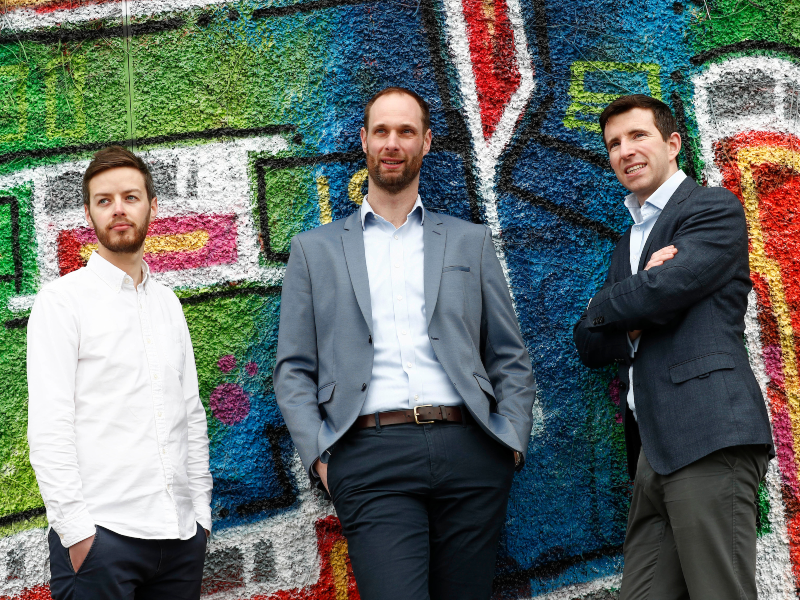
Dublin start-up EdgeTier delivers high-quality analytics products and services to clients in the areas of customer service, customer simulation, and analytics services. Founded in 2015 by Bart Lehane, Ciaran Tobin and Shane Lynn, the company recently raised €1.5m in a funding round led by Episode 1, ACT Venture Capital and Enterprise Ireland. The company recently won Enterprise Ireland’s Digital Disruptor award.
FlowForma
One of the fastest growing cloud companies in the new world of no code Business Process Management, FlowForma is dedicated to making intuitive, affordable process automation tools that empower business users to work smarter and quicker.
The company’s product has more than 200,000 users across more than 20 countries, with customers including Aon, Grant Thornton, Bouygues Group, NHS Trusts, and Trinity College Dublin.
Led by CEO Olivia Bushe, the business has raised €4m in funding that will enable it to scale significantly in the US, beginning with a new office in New York
“Our growth trajectory reflects how digital process automation has gone from the fringes to the mainstream, and how FlowForma Process Automation is now recognised as a fix for process pain points, delivering cost savings, efficiencies, and a great end-user experience for every type of organization in challenging economic times,” said Bush.
Glofox
Glofox is a business management platform that encompasses an integrated mobile and web application, a booking platform and payment processing, all specifically tailored for the health and fitness industry. The company was founded in 2014 by Conor O’Loughlan, Anthony Kelly and Finn Hegarty. Last year it emerged that Glofox raised $10m (€9.2m) in funding as well as the launch of a new platform that enables gyms and fitness studios to deliver live streaming and premium on-demand content. The $10m funding brings total funding raised by Dublin-based Glofox to almost $23m.
Global Shares
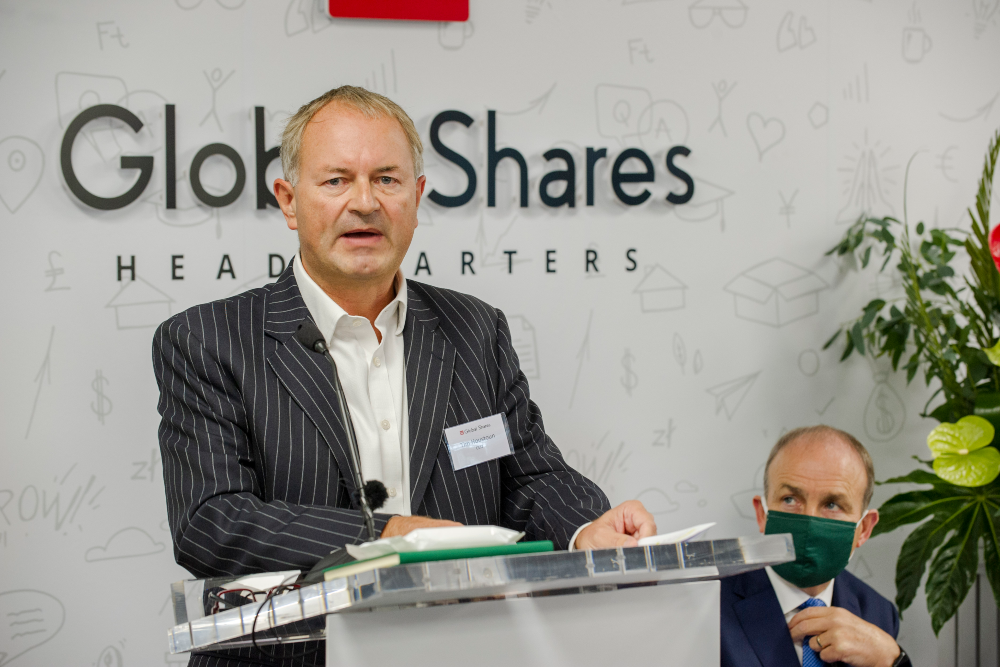
Global Shares CEO Tim Houston
An employee-owned company headquartered in Clonakilty, Co Cork, Global Shares was acquired this year by New York banking giant JP Morgan for a reported €665m. Global Shares is one of a handful of companies globally that offers fully outsourced employee share plan management. It provides the administration services through its team of expert share plan analysts, financial, legal and compliance professionals, but also provides a software platform where employees can view, manage and sell the shares they own, online or through an app. The business was recently crowned winner of Technology Ireland’s ‘Company of the Year 2021’ at the 29th Technology Ireland Awards.
Hikari
After acquiring Dublin tech start-up ProcessUs, Eamon Moore’s Hikari plans to invest €2.1m in the business over the next three years.
Irish data analytics company Hikari recently acquired Dublin-based tech startup
ProcessUs and its 10 employees will immediately integrate into Hikari, doubling the total number of Hikari employees to 20.
Hikari, which is a Microsoft Gold Partner in Data Analytics, is innovative in its approach to leveraging technology to drive business growth; delivering data analytics, business intelligence, process innovation, customised business applications, and business process automation to its clients.
Inscribe
Ronan Burke
Ronan and Conor Burke co-founded Inscribe in San Francisco along with Oisin Moran and James Eggers after graduating from university in Dublin in 2017. Inscribe is an automated document fraud detection system that allows businesses to instantly verify their customers when they request proof of income, proof of address, or proof of expense information.
In 2020 they were listed in the Forbes 30 under 30 list and earlier this year revealed plans to create 30 Dublin jobs after raising $10.5m. I talk to Burke about the technology and the company’s ambitions.
Inscribe’s technology is helping to combat the $20bn fraud losses faced by US financial institutions. Banking, lending, and other fintech businesses can use these AI-powered innovations to reduce risk exposure while granting financial access to more authentic customers and traditionally underserved communities.
The business’s own data shows that while, on average, 5% of all financial application documents submitted in an online channel are manipulated, that number more than doubled to 13% in 2020.
Intercom
Intercom leadership team
Rapidly scaling Irish software player Intercom is to create 150 new jobs in Ireland, growing its local headcount to more than 400 people by the end of 2022.
The company, which also has offices in San Francisco, London, Chicago and Sydney, is hiring across all locations and departments at every level, with expectations to reach around 1,000 people globally by the end of next year.
The announcement comes after Intercom celebrated their tenth anniversary earlier this year, surpassed $200m in annual recurring revenue and has experienced sustained momentum across its customer base.
Intercom helps businesses deliver ongoing engagement to prospects and customers through personalized and in-context communication across channels, including in-product, messaging, email and more.
In 2018 the company gained unicorn status after being valued at more than $1bn. Earlier this year the company scored a major coup by appointing Karen Peacock, named one of the “top 50 most powerful women in technology” by the National Diversity Council in the US, as its CEO.
The Dublin office has served as Intercom’s R&D headquarters since its founding at 3fe Coffee in 2011, giving new hires the rare opportunity to collaborate with technical leadership to bring Intercom’s product to life.
Keelvar
Alan Holland, founder and CEO of Keelvar
Keelvar is the tech business that took everyone by surprise. While Cork is synonymous with tech going back to Apple’s decision to locate in the city in the early 1980s and is now home to a panoply of global and local success stories from Trustev to Teamwork and Workvivo, Keelvar is the one that no one expected.
In June 2020 all of that changed when the company headed by a former lecturer from UCC raised $18m from Boston-based venture capital firm Elephant, London-based Mosaic and Berlin-based Paua Ventures to fuel its growth.
Founded in 2012 by Alan Holland, who used to lecture in artificial intelligence (AI) at UCC, the company uses AI to transform supply chains for large enterprises across the globe.
In a nutshell, it creates bots that automate the buying process for large corporations.
Holland’s ambition is to put Cork on the map for AI and credits the example of businesses that have made Cork part of their DNA and heritage for contributing to that belief. “We’ve seen companies like Apple lay the foundations for building one of the world’s biggest companies from right here.
“I would say that we’re really only at the dawn of a new era in technology. The first era was around building tools like computers, smartphones and networks. The next era will be around intelligent systems. Many companies will be expecting a lot more from enterprise applications which will have to have embedded intelligence to do all of the menial, repetitive jobs. To do this you will need to have structured your software in such a way that you can allow the software agents, or bots, to act as users. So I think we were ahead of the game in terms of recognising the importance of intelligent systems.
“And now a lot of the biggest players in tech are looking at what we’re building and realise that they can’t just build it from scratch. So that’s good for us.”
Learning Pool
Derry tech firm Learning Pool recently revealed plans to create 100 new jobs after landing a new equity investment.
Global equity firm Marlin, which has $7.6bn of capital under management, acquired a strategic stake in Learning Pool.
Established in 2006, Learning Pool comes from the same generation of companies as Twitter and Facebook, but unlike Silicon Valley or Harvard, the location was Derry, Northern Ireland.
The opportunity that CEO Paul McElvaney and Learning Pool’s co-founder Mary McKenna spotted was that organisations were struggling to shift their learning programmes online in a cost-effective way.
Learning Pool’s integrated suite of digital learning products and services has enabled more than 1,100 companies to migrate their training initiatives to modern cloud technology, including global brands like the FA, Intercontinental Hotels Group, Sky, and Swiss Re.
Noledge Group
Ray Ryan
Two financial software firms Envisage and OSSM recently merged under the new Noledge brand and are generating jobs in Dublin and Belfast.
Led by Ray Ryan, Noledge, a new brand in the ERP (enterprise resource planning) and financial software market, is to create 10 new jobs in Dublin and Belfast on the back of a merger between Envisage and OSSM.
The new company is investing €120,000 to launch the new brand and forecasts a doubling in revenues in the next three years.
Nostra Systems
Founded in 2006 by brothers Kevin and Barry O’Loughlin (pictured) as well as Gary Byrne and Senan Finucane, Dublin business Nostra Systems provides full cloud-based IT support to 250 companies including Boyle Sports, Dawn Farm Food and Avolon.
Nostra is on a solid growth trajectory. It grew revenues to €18m last year from €11m in 2019 and is forecasting double-digit growth year-on-year to bring it to its goal of €50m by 2026.
The business recently revealed plans to create 120 new jobs over the next two years, bringing total headcount to 270 people.
Nostra also plans to move to new, larger offices to accommodate the growing workforce as well as facilitate new flexible ways of working post-pandemic.
Payslip
Fidelma McGuirk
Mayo business Payslip is scaling globally due to skyrocketing of demand for payroll services by multinationals that have postponed the return to the office.
Payslip was founded in Westport, Mayo, in 2015 by Fidelma McGuirk. Payslip’s software-as-a-service platform empowers payroll professionals to streamline their global payroll processes.
One of Ireland’s hottest start-ups Payslip is expanding its presence to more than 60 countries having seen a surge in demand for hybrid workforces as a result of the pandemic.
Major tech corporations like Apple Ireland, Facebook, Amazon Data Services, and Google have all postponed their return to the workplace until January 2022.
As a result, demand for payroll services in areas with complicated tax and labour rules has skyrocketed.
Phorest
Phorest has developed cloud-based salon software solutions for hair, nail and beauty salons and spas. Phorest Salon Software takes the pain out of managing and growing salon businesses. Founded in Dublin in 2003 by Ronan Perceval along with Dylan Collins and Sean Blanchfield, the company is one of the biggest scheduling platforms for beauty salons in Europe, with 88pc of salons in Ireland and 19pc of the UK market. In 2018 Phorest secured €20m in funding from US investment firm Susquehanna Growth Equity in a move that facilitated a buyout of, and a healthy return for angel investors who backed Phorest through the Halo Business Angel Network (HBAN).
Profitero
Dun Laoghaire-headquartered digital commerce player Profitero is eyeing the digital future of brands. Profitero is an e-commerce intelligence business for retailers and brands and tracks products across 8,000 online stores in 50 markets for 4,000 clients including Adidas, L’Oreal and General Mills. The company was founded in 2010 by Vol Pigrukh, Dmitry Vysotski and Kanstantsin Chernysh and is headquartered in Dun Laoghaire.
In May it emerged that Profitero has been acquired by global advertising giant Publicis Groupe for a reported €200m.
Qualio
Founded in Ireland in 2012 by Robert Fenton (pictured) Qualio has a global, all remote team. Qualio CEO and founder Robert Fenton now lives in San Francisco, CA. Qualio’s cloud quality management software supports life sciences organisations with technology and services that allow them to seamlessly manage critical quality processes across their entire supply chain. Over the last year, Qualio has experienced unprecedented customer demand, including more than 260pc revenue growth year-over-year. To support this demand, Qualio has focused on value-driven hiring — including tripling the size of their team in 2020.
The company now has more than 300 customers across the globe, spanning the medical device, pharmaceutical, biotech, and contract service provider markets. Customers include notable organisations such as Medable, Paula’s Choice Skincare, Proscia, and Ginkgo Bioworks.
In recent months ThinkBusiness reported that Qualio raised $50m in Series B funding in a round led by Tiger Global.
Scurri
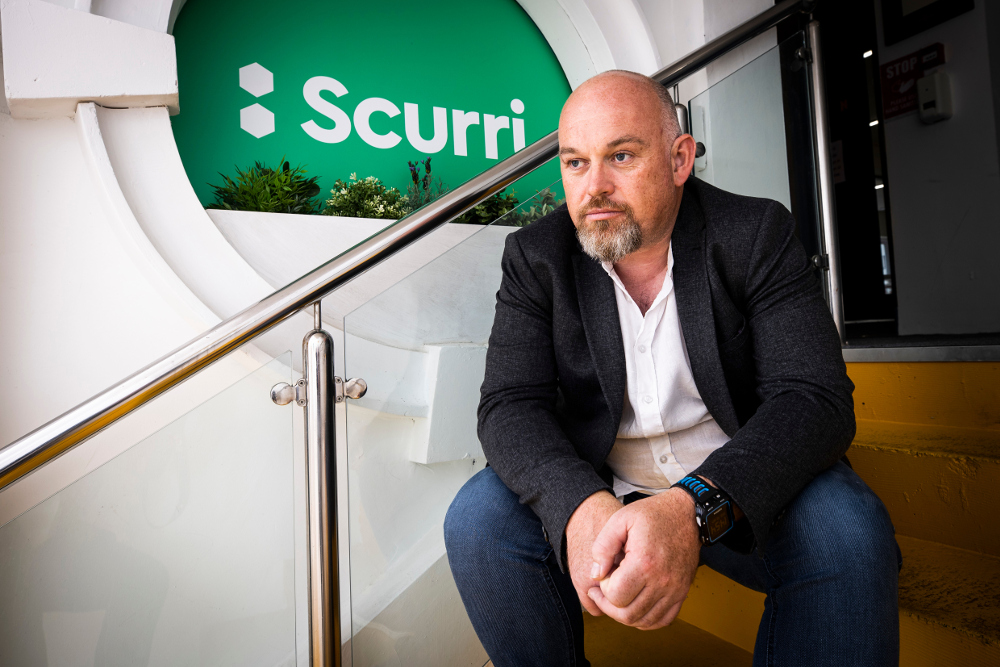
Scurri co-founder and CEO Rory O’Connor
Wexford-based Scurri is redefining the future of retail. Its technology connects and optimises the e-commerce ordering, shipping, and delivery process.
The company adds value at multiple stages along the e-commerce journey: from selecting the most effective delivery option for each package, creating accurate labels, tracking the packages, and running analytics to deliver insight to support process improvement.
Founded by Josephine O’Connor, Rory O’Connor and Eugene Crehan, the company recently revealed plans to triple its workforce to 120 employees after raising €9m in an investment round led by Gresham House Ventures. This brings the Wexford-based company’s total funding to €15.3m to date.
Stripe
John and Patrick Collison
Although not technically an Irish company because it was founded in San Francisco, Stripe has Irish founders and is on its way to employing 1,000 people in Dublin.
Stripe was founded in San Francisco 2009 when CEO Patrick Collison was just 22 and his brother John was 19. Prior that the brothers who hail from Nenagh but as teenagers living in Limerick established a start-up in 2007 called Shuppa that later became known as Auctomatic. They sold Auctomatic for $5m when they were just 19 and 17 respectively.
The business is now valued at $95bn after securing $600m from investors including Irish State’s sovereign wealth fund. The sheer size of its valuation puts it in the rare “decacorn” category ahead of its unicorn brethren.
Of the 42 countries in which Stripe powers businesses today, 31 are in Europe. And many of the continent’s largest and fastest growing companies are building on the platform.
Axel Springer, Jaguar Land Rover, Maersk, Metro, Mountain Warehouse and Waitrose have all recently turned to Stripe to grow and diversify their online revenue, or move faster on their transformation projects. Meanwhile, Europe’s hypergrowth companies such as Deliveroo (UK), Doctolib (France), Glofox (Ireland), Klarna (Sweden), ManoMano (France), N26 (Germany), UiPath (Romania), and Vinted (Lithuania) all build on Stripe to compete on the global stage.
Stripe’s stated mission is to grow the GDP of the internet, making it easy for ambitious companies everywhere to grow their business.
Only 14pc of commerce takes place online today, despite the global economy accelerating its shift to online in 2020, which means there’s plenty of territory for Stripe to go after.
TitanHQ
Cloud-based email and web protection company TitanHQ has seen recruitment surge almost 45pc since last year.
The expansion comes as TitanHQ has welcomed an influx of new business as more managed service providers and SMBs seek better and more powerful email and web security solutions.
Headquartered in Salthill, Galway, and with offices in Tampa, Florida, TitanHQ are a 25-year young multi-award-winning cloud security vendor.
The company is trusted by over 12,000 businesses including 2,500 MSPs across 150 countries, protecting companies including T-Mobile, Virgin, O2, ViaSat, Pepsi, and Datto.
In addition to its organic year-on-year growth, recent significant investment from Livingbridge investor group has turbocharged the company’s growth.
This has allowed TitanHQ to accelerate ambitious growth plans through increased investment in product development and in people.
TekEnable
CEO Nick Connors and CTO Peter Rose
Indigenous Dublin tech company TEKenable is achieving rapid growth as a new chapter in the history of software is about to be written.
Born out of the ashes of the collapse of Digital Channel Partners following the tech crash of 2002, Nick Connors and Peter Rose’s Dublin company TEKenable carefully and methodically built up a solid tech business that in only recent years has begun to achieve rapid scale.
Last year the company landed a €1.6m investment and announced plans to create 60 jobs. It also acquired Greenfinch to create a cloud player of scale with targeted revenues of more than €10m this year.
Employing 102 people, TEKenable recently revealed a €500,000 investment to build new technology that will accelerate innovation the insurance and retail sectors.
TransferMate
Terry Clune and Sinead Fitzmaurice
Founded in Kilkenny in 2010 by Terry Clune, TransferMate recently joined the unicorn club after a new $70m funding round that brought the company to a valuation of $1bn.
The deal sees CEO Sinead Fizmaurice become the first woman CEO of an Irish unicorn.
TransferMate has grown its global licensing infrastructure and banking network to be one of the widest in the industry and has been chosen as the partner of choice to power B2B payments products for some of the largest software platforms, innovative banks and fintechs in the world.
It allows businesses and individuals to make cross-border payments in more than 201 countries and 141 currencies, as easily and cost-effectively as if making a domestic funds transfer, and with complete transparency of the transaction through to the point of final reconciliation.
Version 1
Version 1 is a leading digital and cloud transformation partner to public and private sector customers across the UK and Ireland.
The Dublin business was founded in 1996. Over the past five years, Version 1’s revenues have increased to over €240 million through a combination of strong organic growth and selective acquisitions. Employing over 2,100 staff, it has offices in Ireland, the UK, India and Spain.
It made its first UK acquisition in 2013 and has made a total of 13 acquisitions to date, including Northern Ireland headquartered digital services specialist Neueda last year.
Since 2017, Version 1 has been led by Tom O’Connor, its chief executive, alongside fellow directors Jarlath Dooley and Andrew Langford.
In April it emerged that Version 1 was acquired by Partners Group in a deal that reportedly values the company at around €800m.
Wayflyer
Aidan Corbett and Jack Pierce
Dublin business Wayflyer joined the storied ranks of Ireland’s relatively young unicorn herd in early 2022 after raising $150m.
The business, which was founded only in 2019 by Aidan Corbett and Jack Pierce provides revenue-based financing and marketing analytics for online firms. It then provides e-commerce stores with unsecured capital to secure advertising and inventory ahead of selling items.
Wayflyer is understood to have advanced $500m to more than 800 companies globally last year.
In October 2020 the company raised $7.8m in seed funding and in December 2021 raised $76m in a Series A round. The latest Series B round was led by DST Global and QED Investors along with new investors Prosus, Madrone Capital and JP Morgan as well as eisting investors Left Lane Capital and Checkout.com founder Guillaume Pousaz.
In mid-2022 it emerged that Wayflyer took on $300m in debt financing from JP Morgan.
Workhuman
Eric Mosley
Founded in 1999 and previously known as Globoforce, Workhuman operates employee reward and incentive schemes on behalf of some of the world’s biggest companies and more than 6m employees are on the Workhuman platform across 170 countries.
It achieved unicorn status last year when it was valued at more than $1bn.
Recently filed accounts show it reported a turnover of $681m for 2020.
The business was founded in 1999 by Eric Mosley and Eddie Reynolds.
Webio
Webio co-founders Cormac O’Neill, Mark Oppermann and Paul Sweeney
Dublin and Limerick-based Webio provides conversational middleware for very large companies in retail, financial services, and utilities. Founded by Paul Sweeney, Graham Brierton, Mark Oppermann and Cormac O’Neill Webio recently raised €500,000 to complete a €1. 5m pre-Series A funding round.
Webio which came in at number two on the Deloitte Technology Fast 50 last year operates in the conversational AI market which is expected to grow to €11bn by 2024.
While its customers have been predominantly in the Irish and UK markets, Webio has recently secured several key partnerships in Europe and the US, laying the foundations for future growth.
Webio has a mission to rebalance the credit, collections, and payment ecosystem by reimagining the way customer credit conversations take place.
In recent weeks it emerged that Webio secured $4m to scale its conversational AI technology for use in the collections and payments industry worldwide.
The Series A investment was led by Finch Capital.
Workvivo
Joe Lennon
Workvivo is a young company that could be synonymous with the world of work in the coming decade.
Founded by John Goulding and Joe Lennon, the Douglas, Co Cork-based company has developed an internal communications platform to increase employee engagement.
Workvivo has since won the backing of Zoom founder and CEO Eric Yuan and is creating 100 new jobs in Cork.
XtremePush
Minister Robert Troy with Xtremepush CEO Tommy Kearns
Founded in 2015 by Tommy Kearns and Dr Kevin Collins, Xtremepush enables its global client base to drive revenue and enhance customer experiences through personalised, data-driven communications across all digital channels. Earlier this year the company said it is to double its workforce in Ireland and overseas to 140 people after it secured $33m in funding. Ranelagh-based Xtremepush has undergone continual growth year-on-year since its launch in 2014 and already employs 70 people in Ireland, the UK, Central and Eastern Europe, and at its recently opened US headquarters in New York State.
In recent weeks it emerged that Xtremepush is planning to create 170 new roles in the coming three years to support the global roll-out of its award-winning enterprise customer intelligence platform.

